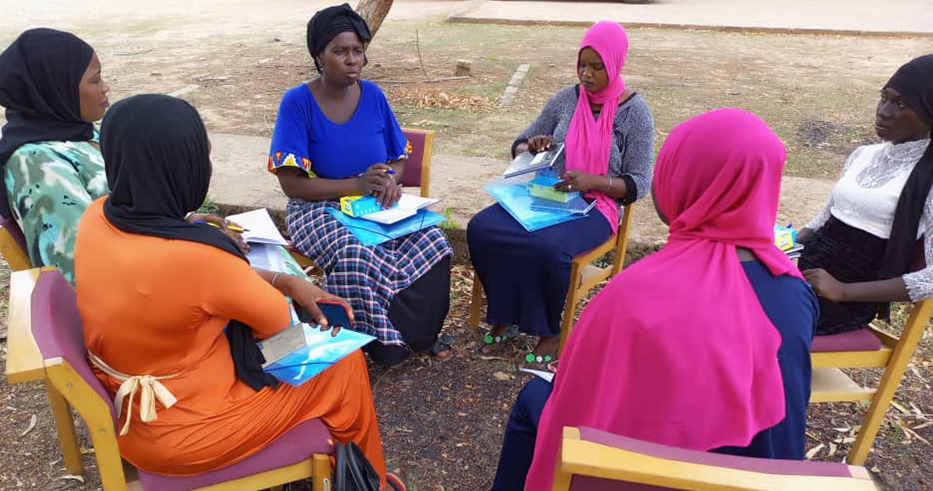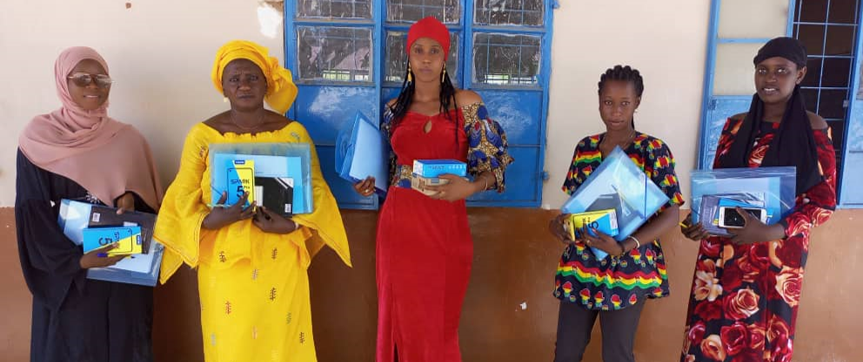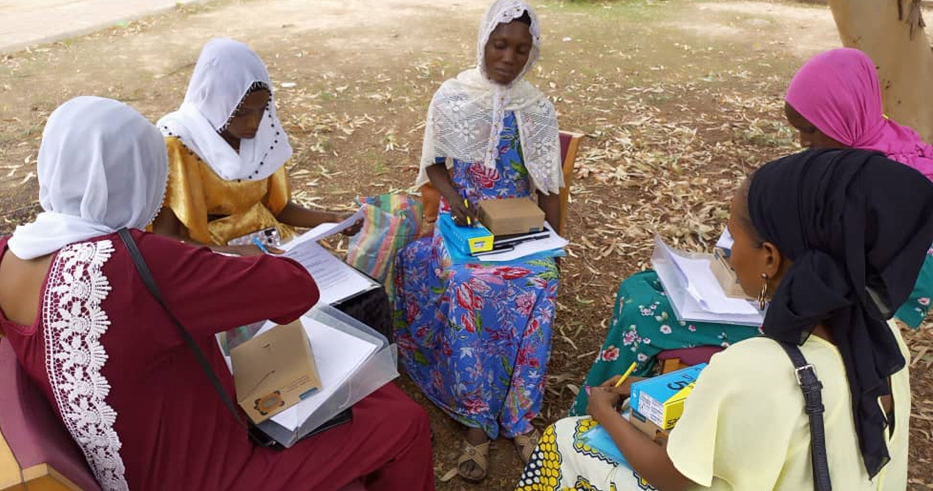
Using Technology to Connect Rural Women Teachers in The Gambia
Canadian Teachers' Federation
With a population of just over 2.1 million, The Gambia is the smallest country in West Africa and one of the poorest. In the country’s rural areas, educational opportunities are extremely limited, especially for girls. Only 40% of Gambian women are literate, while only 30% reach a secondary school level.
A major barrier to girls’ education in rural areas is the availability of qualified women teachers. Women who are educated as teachers hesitate to take placements in rural areas due to feelings of isolation and lack of support. As a result, fewer girls attend school in these regions. Not only do women teachers serve as role models for young girls, but they are also seen as less threatening by parents, who hesitate to have their girls taught by men.

Funded by FIT, the Canadian Teachers’ Federation, along with their local partners The Gambia Teachers’ Union, employed an innovative solution to retain women teachers in rural areas. In an effort to address feelings of isolation and professional stagnation among women teachers, the ‘Mobile Technology’ innovation connected them with mentors, support networks and professional development opportunities. Participants were given mobile smart phones with solar-powered chargers that allowed them to connect with professional learning communities (PLCs) that offered content delivered through WhatsApp, Zoom, Podcasts, video and more.
Bala, a young Gambian teacher who was mentored through the program shared the following:
“I used to be an introvert with no confidence in myself,” “After the PLCs, midline and endline presentations on gender-based violence and leadership, I felt that I had gained the courage to do many things and discovered that I am actually an extrovert! I just needed more self-confidence. I now have aspirations and am maximizing my potential.”
The results of this innovation were measured against a control group of women teachers who did not receive mentorship or access to PLCs. At the end of the testing period, 84% (40/48) of the mentees, including Bala, indicated being more likely to stay in the teaching profession long term, compared to the 70% of the control group. Additionally, 79% (38/48) of the mentees reported feeling less isolated and disconnected in their teaching communities compared to the 75% (13/18) reported by the control group. Notably, 84% (50/60) of the participating mentees and mentors reported increased comfort in the use of mobile phones for professional use which exceeds the 60% project target.
Bala reported that her participation in the innovation also motivated her to take responsibility for her girl students and address the challenges they face.
“I now talk to girls about menstruation and menstrual cramps, and how they should not be prevented from coming to school due to menstruation. This is something I did not do before.”

Dado, who participated as a mentor in the innovation, said she witnessed a substantial transformation in the teachers she worked with. She has tackled methodology and seems more confident than before:
“I have seen great changes, especially in one of my young mentees who teaches grades 7 to 9. College did not prepare me for the job but working with a mentor has taught me a lot and I have no problems with lessons anymore.”
Both mentors and mentees have reported that the relationships they formed have continued after the testing period. Teachers who were given smart phones have retained their devices and continue to connect with their professional communities. Participants also reported that their learnings, namely those related to gender, have positively impacted their personal lives. Many are now working toward financial independence and have more autonomy in their futures. The Gambia Teachers Union continues to support the participants as they further their careers.


